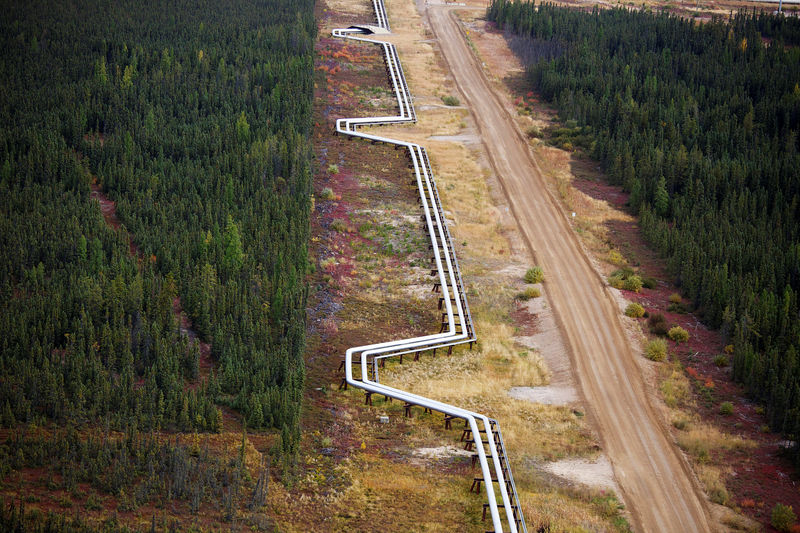By Nia Williams
CALGARY, Alberta, July 24 (Reuters) - Enbridge Inc's ENB.TO move not to ration space on heavy oil pipelines out of western Canada for the first time in 16 months is likely to give producers only a short respite from difficulties in getting crude to market, industry players said.
Market access is a persistent headache for Canadian energy firms, who produce oil from the world's third-largest crude reserves but often struggle to get their barrels to U.S. markets because of limited space in export pipelines.
Canada's largest pipeline company said last week apportionment - or rationing of space - on its heavy crude pipelines out of Alberta would be zero in August, meaning producers could ship all the barrels they have said they want to move. the August respite, there are concerns production could again outpace capacity later this year, forcing more producers into the costlier option of shipping crude by rail, as new projects like Suncor Energy 's SU.TO 194,000 bpd Fort Hills mine start up.
"The pipes will probably get full again by the end of the year and rail will be a way to get those incremental barrels out," said GMP FirstEnergy (NYSE:FE) analyst Martin King, adding the discount on Canadian crude would likely widen as a result.
Usually shippers on Enbridge's Mainline system, which carries the bulk of Canada's 3 million barrels per day of crude exports to the United States, have at least some of their nominated heavy crude volumes cut every month.
Some months firms like Suncor, Cenovus Energy CVE.TO and Husky Energy HSE.TO can ship only around 60 percent of their nominated pipeline volumes as demand for space outstrips capacity.
Proposed new export pipelines like TransCanada Corp 's TRP.TO Keystone XL have run into fierce environmental opposition and regulatory roadblocks, while the newly-elected British Columbia government has vowed to halt Kinder Morgan (NYSE:KMI) Canada's KML.TO Trans Mountain expansion.
In the past, hefty pipeline apportionment led to a glut of crude building up in Alberta, widening the discount on Canadian barrels and eating into producer revenues.
It also contributed to international oil companies like Statoil ASA STL.OL and Royal Dutch Shell RDSa.L pulling back from the oil sands over the last year, moves that have raised questions about future development of the region. Pacific Railway CPR.TO has seen conversations with customers about potentially shipping crude by rail ramp up over the last month, head of marketing John Brooks said on the company's quarterly earnings call last week.
Traders in Canada's oil capital Calgary said a number of factors including oil sands supply outages, low Alberta storage inventories and steps taken by Enbridge to free up more space on its system had helped eliminate August apportionment.
Two traders said Enbridge has started moving Borealis Heavy Blend crude on its 390,000 bpd Line 3 pipeline, which previously carried primarily light crude, in a bid to help lessen congestion on heavy oil lines.
Enbridge declined to comment, citing client confidentiality.
